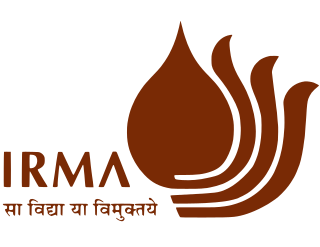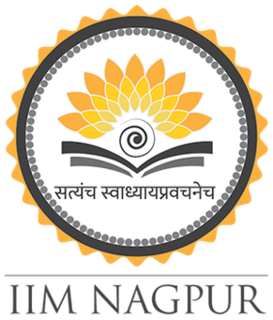Growing scope of Rural Management in India
India has close to 4,000 management schools that produce over 300,000 graduates every year. But the country has few niche management schools focusing on the rural sector. Rural management schools produce less than 1,000 rural managers. The small number is surprising considering the importance of the rural sector, or Bharat, in India's economy.
According to a study by global consulting firm Accenture, the rural economy accounts for 50 per cent of the country's gross domestic product. It also makes up 70 per cent of the country's population and 50 per cent of the work force. About 75 percent of new factories built in the past decade have come up in rural India, which accounts for 75 per cent of all new manufacturing jobs. Since 2000, per capita GDP has grown at 6.2 per cent a year in rural India compared with 4.2 per cent in urban areas. And in terms of spending, Bharat has trumped India by a mile. Between 2009 and 2012, Indians in the countryside spent $69 billion compared with $55 billion in big towns and cities.
Harish Manwani, chairman of Hindustan Unilever Ltd, says rural India is a powerhouse with the potential to add $1.8 trillion, or the equivalent of the current GDP, to the country's economy. But this potential can be realised only if Bharat and India merge.
Mainstream management schools have not ventured into rural management for many reasons. The rural management courses are very niche and they call for students with a different set of attitudes. The teaching approach is also different. Most mainstream schools may not be prepared to handle such subjects," says Professor Abraham Koshy, professor of marketing at the Indian Institute of Management, Ahmedabad. Experts say there is room for more rural management schools. For a country of India's size and the number of problems we face, there is a need for lot more such institutions. There is a need to create a lot of rural managers who are potential agents of change.
Rural Management is one such specialisation which gives you the chance to contribute towards uplifting and betterment of those sections of the society, where the light of development is yet to reach. The purpose of the rural managers is to promote sustainable, eco-friendly and equitable socioeconomic development of rural area through professional management of their institutions and organisations. Previously, only a few people opted for this challenging course but nowadays, a lot of students are opting for this course of rural management as they want to learn and showcase their skills to ensure that the performance in the rural sector is enhanced..
Unique areas of Rural Management in terms of course and career
The MBA (Rural Management) programme is unique in the sense that in addition to traditional management courses such as Project Management, Accounting, Human Resources, Quantitative Techniques, Managerial Analysis and Communication, Finance, Marketing Management, many specialised courses focusing on management of rural sector are offered.
Agribusiness Management, Rural Production and Livelihoods, Rural Finance and Commercial Banking, Natural Resources Management and Climate Change, Rural Marketing, CSR Management, Micro Finance, ICTs for Development, Innovation in Rural Development and Enterprises, Policy and Programme Interventions in Rural Development are some of the courses especially focusing on the rural sector.
Anyone who completes MBA (Rural Management) has the advantage of having career opportunities in any general management area. In addition to that, Rural Management graduates alone are preferred in specific areas mentioned above.
The Indian Institutes of Management (IIMs) are institutes of management education and research offering undergraduate, postgraduate, doctoral and executive programmes along with some additional courses in the field of business administration. The establishment of IIMs was initiated by Jawaharlal Nehru, the first prime minister of India, based on the recommendation of the Planning Commission of India.
Verghese Kurien, known as the "Father of the White Revolution" in India, was a social entrepreneur whose "billion-litre idea", Operation Flood, made dairy farming India's largest self-sustaining industry and the largest rural employment sector providing a third of all rural income. It made India the world's largest milk producer, doubled the milk available for each person, and increased milk output four-fold in 30 years.

Indian Institute of Management Ahmedabad is a business school located in Ahmedabad, Gujarat, India. The school has been accorded the status of an Institute of National Importance by Ministry of Human Resources, Government of India in 2017. Established in 1961, the institute offers master's degree programs in management and agri-business management, a fellowship program and a number of executive training programs. The institute's founding director is Errol D'Souza. Other notable founding figures were the Indian physicist Vikram Sarabhai, Indian businessman Kasturbhai Lalbhai and Indian educator Kamla Chowdhary.

Indian Institute of Management Lucknow is a public business school in Lucknow, Uttar Pradesh, India. It was established in 1984 as the fourth Indian Institute of Management (IIM) by the Government of India. IIM Lucknow offers post-graduate diploma, fellowship and executive programs in management. It is recognised as an "Institution of Excellence" by India's Ministry of Human Resource Development. IIM Lucknow also serves as the mentor institution for the newly established IIM Jammu, IIM Rohtak and IIM Kashipur. It also served as a mentor institute to IIM Sirmaur till 2018.

Indian Institute of Management Bangalore is a public business school and Institute of National Importance located in Bangalore, India. Founded in 1973, it was the third IIM to be established, after IIM Calcutta and IIM Ahmedabad.

Anand is the administrative centre of Anand District in the state of Gujarat, India. It is administered by Anand Municipality. It is part of the region known as Charotar, consisting of Anand and Kheda districts.

The Indian Institute of Management Indore is an autonomous public business school located in Indore, Madhya Pradesh in India. Instituted in 1996, IIM Indore is the sixth addition to the Indian Institute of Management (IIM) family of management schools and was named as an institute of national importance in 2017 along with the other IIMs.

Kalinga Institute of Industrial Technology (KIIT), formerly KIIT University, is a private deemed university located in Bhubaneswar, Odisha, India. It primarily emphasizes on higher education and research in engineering and science. It offers 34 Undergraduate, 32 Postgraduate, 10 Integrated, 11 Ph.D and 7 Postdoctoral research programmes in the fields of Science and Engineering, Medical Science, Management, Law, Film and Media, Humanities and Yoga and sports. The admissions for B.Tech. programmes are purely based on merit as per the results in KIITEE exam.

Asian School of Business is an AICTE approved business school located in Technocity West, Pallipuram, Trivandrum, Kerala. India. The institution was established in 2005.

Institute of Rural Management Anand is an autonomous institution and premier business school located in Anand Gujarat, India with the mandate of contributing to the professional management of rural organisations. IRMA was founded with the belief, borne out by Verghese Kurien’s work in the dairy co-operatives which revolutionized the dairy industry in the country, that the key to effective rural development is professional management. It is considered as the best business school in the Rural and Agricultural Business Management Sector of India.

Previously a neglected aspect of the Indian Central government, Education in Odisha is witnessing a rapid transformation. Its capital city, Bhubaneswar, is emerging as a knowledge hub in India with several new public and private universities, including the establishment of an Indian Institute of Technology after five decades of demand.

Ravi John Matthai (1927–1984) was an educationist and a professor and the first full-time Director of the Indian Institute of Management, Ahmedabad. He is also the co-founder, along with Dr. K. Varghese, of Institute of Rural Management, Anand.

Indian Institute of Management Shillong is a public, fully autonomous management institute in the city of Shillong, Meghalaya. It was the seventh Indian Institute of Management to be established in India.
KIIT School of Management (KSOM) is a business school located in Bhubaneswar, Odisha, India. It was established in 1993 as the Institute of Business Administration and Training. It is a constituent institute of Kalinga Institute of Industrial Technology.

The state of Uttar Pradesh had a long tradition of learning, although it had remained mostly confined to the elite class and the religious establishment.
KIIT Group of Institutions is a group of institutions run by KIIT Education Society in Bhubaneswar, Odisha, India. It includes KIIT University, Kalinga Institute of Medical Sciences, Kalinga Institute of Social Sciences and other institutes.

The Indian Institute of Management Udaipur, also known as IIM Udaipur, is a graduate business school in Udaipur, Rajasthan, India. Established as an autonomous body in 2011, the institute offers a two-year full-time MBA program, one-year postgraduate MBA programs, a Doctor of Business Administration program and other management development programs. It is one of the seven Indian Institutes of Management set up by the central government during the Eleventh Five-Year Plan. and is counted as one of the Institutes of National Importance.

Labdhi Bhandari was the State Trading Corporation of India Professor of Marketing at the Indian Institute of Management, Ahmedabad and a widely respected authority on marketing in India.

XIM University is a Jesuit, Catholic university located in Bhubaneswar, Odisha, India. It was authorized by the Odisha Legislative Assembly in 2013 making it the first Jesuit university in India. Drawing its legacy from Xavier Institute of Management Bhubaneswar(XIMB), founded by the Jesuits in 1987, the university was facilitated by the Govt of Odisha in 2013 and went on to be called as XIM University with XIMB now being a constituent school offering only MBA-BM through XIM University. The other XIMB courses like HRM and RM are now continued by separate schools under XIM University. The sprawling XIM University campus is situated at Sundarpada jatani road near Jatani town in the outskirts of Bhubaneswar. The Jesuits have more than 50 colleges and several hundred educational institutes in India but this is the first university they have founded in the country.

The Indian Institute of Management Nagpur also known as IIM Nagpur or IIMN is a public business school located in Nagpur, Maharashtra, India.















